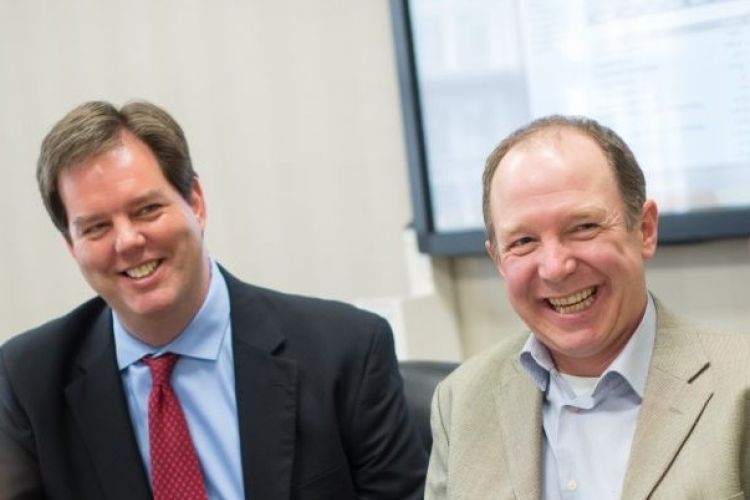Breadcrumb
Pacific report: Middle-skilled jobs key to Stockton’s economic future

Jeffrey Michael and Thomas Pogue oversee the Center for Business and Policy Research at University of the Pacific
The need for an equity-focused and employer-responsive system to increase the number of good-paying jobs in the Stockton area was highlighted in a report released December 7 by the Center for Business and Policy Research at University of the Pacific.
The report, titled “Building Ladders to the Future: Middle-Skilled Job Analysis,” highlights the needs, challenges and opportunities that come with economic development that focuses on a more-skilled workforce.
The center teamed with the office of Stockton Mayor Michael Tubbs to produce the report, which was funded by the James Irvine Foundation.
“The pandemic has brought economic disruption and hardship. It is already accelerating the structural change in the labor market,” said Jeffrey Michael, executive director of the Center for Business and Policy Research. “So now, more than ever, it is important to focus on workforce and economic development in an integrated way. We need to turn this analysis into action.”
Thomas Pogue, assistant director of the center, handled much of the research. He pointed to an alarming statistic: the median wage of a job in the Stockton area dropped from 75% to 69% of the California median wage between 2010 and 2019.
“We want to change the status quo and push forward…How do we take the work experience and leverage it into better-paying jobs?” Pogue asked.
The report also detailed that almost half of the Stockton area’s job growth in the past five years has been with fulfillment centers, where wages are typically low – slightly above minimum wage. The report also touched on the high concentration of non-credentialed teachers in the area.
The report delved into potential solutions by creating a job-skills relationship map that shows “integrated pathways to build both career lattices and leaders that foster and expand middle-skilled jobs in Stockton.”
“What is exciting about this report is it represents an adage that I feel even more strongly about today. That is the idea that we have agency … and we have the ability to actively re-write the future of our community in a way that is different than the past,” Tubbs said. “We are more interested in talking about where we are going versus just reminiscing and complaining about where we have been.”
Ann Rogan, executive advisor to the mayor, worked on the report with the center.
“The work did not begin with this report and it does not end with this report,” Rogan said. “Ultimately, we are building a workforce system in Stockton and realizing what assets we have in the city. We look at how we can take low-wage occupations and turn them into living-wage jobs.”
Don Shalvey, executive director of San Joaquin A+ and a member of the University of the Pacific Board of Regents, said education leaders and the business community must work hand-in-hand to strengthen the pool of quality teachers and in fostering workforce development.
“Education and overall quality of life are inextricably linked,” Shalvey said. “This report’s data makes it clear that the business community and education must work more closely together in order to bring about needed improvement.”





